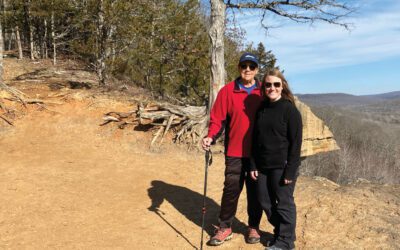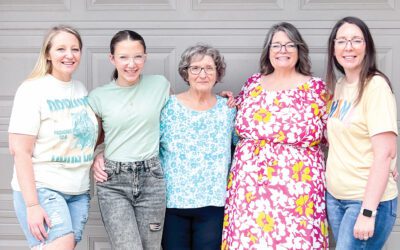It’s a cloudy eleven o’clock and a nondescript meeting room is filled to the thresholds with teenage young men. It’s not a detention hall or juvie, it’s not group counseling or anger management or scared straight, in fact, the parade of speakers here today and over the next five days of spring break are here to avoid any of these from becoming a routine part of the young men’s lives.
Rufus Jackson is addressing the boys from the front of the room surrounded by ten of his brothers–an honored term they use in addressing one another–all barbers and all men of color. The young audience is quiet and respectful, but the men at the front talking about their profession are losing them, one by one.
Sensing this, Rufus regains the podium and quietly announces he has something to share with the boys he’s never shared publicly. About how he grew up on the same troubled streets they are. Of how his mother was known as a leading drug dealer and how that lifestyle provided, at least initially, all kinds of material things. But when that ended, and on this point, he doesn’t elaborate, he was left to be the provider of the family. So, in his teen years, he started down his mother’s path.
“I tried to start selling weed,” he said. “But I never made any money because I didn’t trust anybody, I knew what that life was about. So, you know what, I gave it back. I said this is not for me. I knew I wanted to be better for my kids one day. I knew I didn’t want to give them that type of lifestyle.”
*****
Following the talk, Rufus and the other men relaxed in a nearby room to share their stories. Many of them shared the same taproot of poverty and broken homes that started them down the wrong path in life, experiences which have united them in a desire to shape and form the next generation to aim higher.
“I want to give Pine Bluff a positive look again,” says Dr. Marshawn Wilbourn, as to why he’s here today. “Right now, when you hear Pine Bluff, you hear the young kids are out there killing people. I’m not from Pine Bluff, but Pine Bluff is my heart. I want Pine Bluff to get a positive look. “If we don’t start doing that in our community, ain’t nobody else going to do it.”
Marshawn, along with Rufus and a handful of others, share this desire of reinventing one of Arkansas’s most troubled cities. It led them to form Kappa Upsilon Tau, a barbershop fraternity devoted to upholding the high standards of the profession, recognizing the importance of the barbershop in the community, and improving the future of those communities through positive interactions with youth.
“Growing up in the nineties, when I used to see barbering, a barber was always dressed up and professional. And I looked up to that type of thing,” Rufus says. “As time went on, you see it lacking a little bit. There weren’t many positive role models in the barber game.
“In the times that we’re in right now, it’s time for a change. Everything siphons through the barbershop. It’s almost like we control a lot of what’s going on. So, we came up with the concept of hey, these kids actually look up to us so, why not–let’s do something about it? That’s where most of this came from.”
The group talk was hosted by the Pine Bluff Police Department, and it was just one of the community outreach programs the fraternity had already provided. Another one, Buzzcuts, Barbers and Books, again brought the barbers together with kids, this time at a local school. Eight fraternity members visited James Matthews Elementary School to provide free haircuts to boys as well as a willing ear to discuss what’s going on in their lives and their futures.
Nikita Richardson Lowe, the school social worker, was the catalyst for the event.
“What I do is connect children and families to resources outside the school,” she says. “If a child needs uniforms, it is my job to get the child uniforms. If a child is hungry or if a family is homeless, it is my job to connect them with resources outside the school. I do a little bit of everything.”
Including, she says, work the pickup line, which is where Nikita flagged down Kappa Upsilon Tau (KUT) charter member Greg Farris, whose daughter is a student there, with an idea.
“I talked to him about giving some of the boys haircuts,” she says. “He gave me some cards and said, ‘Hey, just have them come up to my shop.’ I’m thinking a lot of our kids have problems with transportation. So why not just bring the barbers to the school? He said, ‘Yeah, that’s a great idea.’”
Greg rounded up some of his KUT fraternity brothers who gave up part of their day off to participate in the new program. Eight barbers served forty-five “customers” with a stylish new cut.
“And I’m not talking about just a little line and taper, I’m talking about designs, the Fendi sign, stars and stripes,” Nikita says. “And they talked to them about behavior. ‘What do you want to do when you grow up?’ They talked about Black history. They talked about barbering. They talked about college. A lot of them were like, ‘Oh, I’m going to be in the NFL or the NBA.’ They told them, ‘You have to have a backup plan.’
“And the ones that weren’t talking, who were waiting their turn, they were reading. One of our goals is to get fifty percent of our students reading on grade level. I thought what a cool way to incorporate literacy, mentorship and provide the social support they need.”
Nikita reported many of the boys strutted back to class where they were met with positive reinforcement from their peers. Each student touched a nerve in the participating barbers, too.
“Yeah, it’s very personal to me because when you see someone that’s less fortunate, it makes you want to give back even more,” says Antonio Jackson, a barber from Star City. “My thing is, I want to not just leave a mark on someone else’s life, but we as an organization leave a mark on the community. That’s the main thing about what we want to do is to impact someone’s life. Hopefully, we can inspire them to be a better person than they were yesterday.”
Pine Bluff barber Jeremy Gray says the kids’ excitement over getting a first-class cut was infectious. “Just the kids telling us about the last time they got a cut, or how excited they were to be able to have a cut, that kind of touched a little bit” he says. “We’ve all probably been through points in our lives where we couldn’t get cuts and that was the last thing on our mind. But when we got it, we felt like a whole different person. So, seeing those kids coming in and being kind of shy and leaving with the confidence that they left with, I fell in love with the process all over again.”
Both the school and the fraternity would like to see the event become a regular one as well as watch it grow to other communities and across the country. “Just reaching out in every place that may need help, you know?” says Greg Farris. “The schools, you can always start there. You go to your Boys and Girls Clubs and things like that. For this next one, instead of just little boys, we’re going to make it where little girls can start getting their hair done, too. We want to reach out to all the kids with that help.”
*****
Earlier, as Rufus Jackson told his personal story, it was obvious the testimony had shaken the teens from their droopy state to lean forward into every word. The local headline that morning had been yet another homicide, an event of such frequency that many of the young men saw it as just another fact of life.
As Rufus neared the end of his talk, a young man rose from his seat, walked to the front, and placed a laminated faux hundred-dollar bill in a basket at the foot of the rostrum. Then another rose, and another, then two more, each following suit. The moderator explained the teens were given a stack of these bills and when moved by a speaker or impacted by a message, they showed their appreciation by placing one in the basket. The men of KUT left the room knowing that each piece of play money represented the very real impact their examples had.
“You may have a life-changing conversation with just one,” Greg Farris says with a satisfied smile. “If you can get one, you know – from zero, one is better than nothing.”




